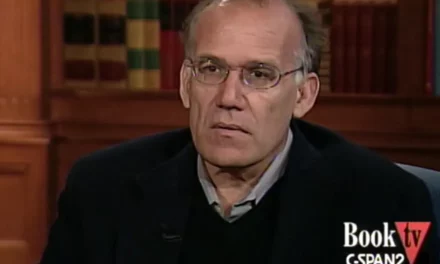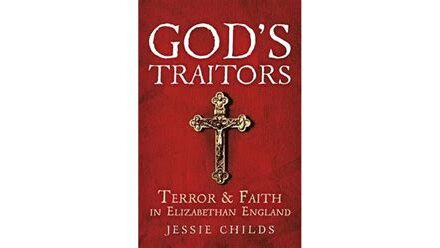Review of Hanging Mary by Susan Higginbotham.
Sourcebooks Landmark, March 16, 2016.
Susan Higginbotham’s historical novel Hanging Mary is set in Washington, DC during the waning months of the Civil War. Two narrators, Mary Surratt, proprietor of a boarding house and Honora (Nora) Fitzpatrick, one of her boarders, tell the story of John Wilkes Booth’s conspiracy either to kidnap or murder Abraham Lincoln for the sake of the Confederacy—at least as much as they each know from interacting with Booth, Surratt’s son John, and other conspirators who visit the boarding house from the Autumn of 1864 to the Holy Week of 1865 (Lincoln was assassinated on April 14, Good Friday).
Mary Surratt is a widow, her son Isaac is a Confederate soldier, her younger son John is a blockade runner and spy, and her daughter Anna hates any representative of the Union, especially Lincoln. His re-election, the fall of Richmond, and the surrender of Lee at Appomattox are all disappointments for the Surratts. Nora Fitzpatrick’s widowed father lives in Washington, DC at a hotel and travels often so he boards his daughter, a graduate of Georgetown Academy, with Mrs. Surratt.
Higginbotham’s novel is vivid with character development and historical detail. The conspirators come and go at the boarding house, and both Nora and Anna find John Wilkes Booth, a charming tragedian, attractive. Nora visits one of the local Washington hospitals to read to the wounded soldiers and has a romance, ended by her suitor’s death before they are even engaged.
Nearly all of the dramatis personae at Mrs. Surratt’s boarding house are Catholics, or as Mary’s mother says, “Catlickers” (Mary and her brother are converts). Nora’s sister is a cloistered nun and her brother is studying for the priesthood; another tenant, Louis Weichmann, is also discerning a vocation. When John Surratt leaves Washington, DC, he first finds sanctuary in a Canadian seminary and then in the Papal States as a Pontifical Zouave during the Risorgimento, defending Pope Pius IX against Garibaldi and Italian unification. So in addition to being the meeting place for Southern sympathizers in the Capital city of the U.S.A., the boarding house is a little Catholic enclave in a big Protestant, anti-Catholic World.
Hanging Mary brings up several moral issues. One issue is whether it is just for U.S. civilians to be tried in a military tribunal without recourse to the protections of civilian courts—a question resolved in 1866 by the U.S. Supreme Court: no, it is not ( Ex parte Milligan ).
The web of conspiracy at the Surratt household brings up other tests of love and loyalty. The genre of historical fiction and the narrative structure of this novel foster meditation on the virtues of justice, love, and loyalty. The reader becomes the judge, weighing the evidence: whose love and loyalty are well-placed and whose are not?
Nora Fitzpatrick loves and feels great loyalty to her landlady. She does all she can to defend Mary, in spite of imprisonment, the impact on her reputation, and even the remonstrances of her father. Although Nora has to testify for the prosecution—and is held in prison until her cooperation is assured—she also testifies for the defense to present exculpatory evidence. Nora tries to obtain a Presidential reprieve from Mary’s death sentence from Andrew Johnson, finally realizing that John Wilkes Booth had killed the only man who would have had mercy: Abraham Lincoln. She witnesses Mary’s death: “You don’t forget the sight of a woman who treated you like a daughter swinging at the end of a rope.” Nora is a very sympathetic character and her love and loyalty seem justified.
Mary loves her son John and, in spite of her misgivings about what Booth does reveal about his plot against Lincoln—which she thinks is a kidnapping to force the Union to resume the exchange of prisoners of war—does not reveal her suspicions to the authorities in part to protect her son. Mary’s loyalty to her son, while she comes to resent his staying away, means that she is tried and punished in his stead. John leaves his mother to face all the repercussions of the conspiracy he brings to her boarding house; when he finally returns to the U.S. to stand trial—extradited from Egypt—he is found not guilty by a civilian court (because of Ex parte Milligan ).
Higginbotham’s Mary contends that she is also not guilty, certainly not guilty of conspiring to murder the President: “I did not plot to kill the president. I knew nothing of any such plot. No one at that trial testified that I did. No one could testify that I did. I am innocent. . . . I do not deserve to die for this!” But she knew that her son and Booth were plotting something illegal and dangerous; her love and loyalty seem misplaced and contribute to the judgment against her.
During the trial, Nora reminds the prosecution’s star witness, Louis Weichmann, of the innocent camaraderie at the boarding house, “when we were amusing ourselves and no one was plotting anything”. He tells her that’s not relevant, but to Nora, “It’s part of the story”. It becomes part of the story to the reader too. Highly recommended














